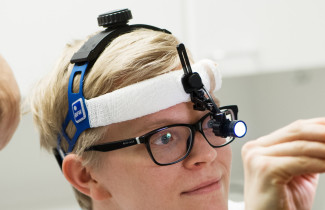- Health and well-being
Speaker: Katri Pylkäs Ph.D., Professor in Medical Genetics, Docent in Cancer Genetics, University of Oulu; Biocenter Oulu Sequencing Center coordinator; Head of Genetics responsibility area, NordLab
Topic: Inherited breast cancer susceptibility - Identification of novel factors using Northern Finnish breast cancer cohorts
This time the seminar is organized by FICAN North. The seminar will be held online (Microsoft Teams) and is open to everyone interested in cancer research. Join the online event.
Abstract: Our research focuses on breast cancer genetics and inherited predisposition to this common disease. Based on the familial clustering of breast cancer, up to 10% of all cases is estimated to be caused by strong inherited predisposition. However, the known predisposing alleles explain less than half of the hereditary component, leaving the causal factors for majority of breast cancer families unknown. Our research aims for the identification of additional inherited predisposing alleles and understanding their effect on disease onset and behavior. Our studies are based on large breast cancer cohorts collected from Northern Finland together with the clinical collaborators. The predisposing genetic variants are searched by using various genomic approaches, addressing both nucleotide level variation and larger scale genomic events. For the functional characterization of the identified alleles, we use functional genomics, biochemical and disease modelling approaches. For example, we have identified several predisposing founder alleles in Northern Finnish population, including MCPH1c.904_916del (p.Arg304ValfsTer3), SERPINA3c.918-1G>C and ATM c.7570G>C (p.Ala2524Pro). Of these, MCPH1 and SERPINA3variants are categorized as moderate-risk alleles, whereas ATM variant is defined as a high-risk allele, and the carriers are counselled and monitored accordingly. In our research projects, we will utilize new genomic methods, the latest being optical genome mapping technology, which has been set-up into our laboratory. These are also offered as a service for other research groups and routine clinical diagnostics.
For further information on the seminar, please contact: Outi Nikunen, [email protected].



